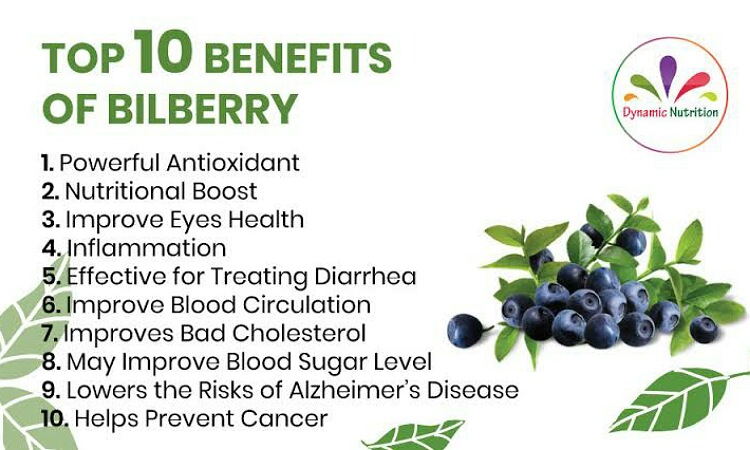Bilberries are a type of small blueberries that are native in North Europe. Called also European blueberries, there are claims of some health benefits with it. Bilberry extract has some potential beneficial uses. What are these benefits?
Bilberries
Bilberries are small blueberries that grow in Northern Europe. Their scientific name is Vaccinium myrtillus. Their physical appearance is similar to the North American blueberries. The dried fruit and leaves have medicinal uses. People have been using it since the Middle ages to heal and cure several health ailments. The juice of these berries has the capacity to impart for to linen and paper. Hence it is used as a dye in this industry.

Bilberry extract is available commercially and there are claims that it has profound benefits to lower blood sugar and cholesterol. It also is good for eyes and vision. It has tannins in it and these reduce inflammation and secretions especially of the throat and nose.
Nutritive value of and antioxidants in bilberry extract
Bilberries or European blueberries are rich in several nutrients. In a cupful of berries with weight of 148g, bilberries provide 85 calories. There is 15 g of sugar in it and 4 g dietary fiber in it. 85% is water and ample of manganese, vitamin C and K are present in these fruits.

Additionally, these berries are full of antioxidants. These help to fight against cell damage, inflammation and resulting diseases of the body. Moreover the berries have anthocyanins and phenolic acid and both are good for the body.
Potential health benefits
Bilberries and its extract can help in eye health and vision improvement. They are especially good for night vision. There are only a few small scale studies that correlate the usefulness of bilberries for night vision. There is no strong evidence to back this claim. One study over 2 years showed that it improved vision by 30% in patients of glaucoma. In another study, it lessened the complaints of dry eyes and eye fatigue in people with computer vision syndrome.

These berries also have a strong anti-inflammatory action. This is due to the phytochemicals that are packed in them. In a study over 3 weeks, this extract lessened the inflammatory markers in people taking it by as much as 38 to 60%. Another small scale study of 4 weeks duration also showed similar efficacy. More research is needed in this direction.
These berries can reduce breakdown and absorption of carbs in the gut and also increase insulin secretion. Both actions lessen blood sugar rise following a meal. Its vitamin K content can prevent clots and thus lowers the risk of heart attacks and strokes. The berries lower blood pressure readings. People having it have improved platelet function and lowered cholesterol levels. All this protects the heart.
Read more: Blackberries: a good fruit option for diabetics and heart patients
Other benefits reported are enhanced memory and brain function, antibacterial action, and in ulcerative colitis. One can have them fresh or dried. Eat it alone or added to other foods such as oatmeal, smoothies, cookies, etc.